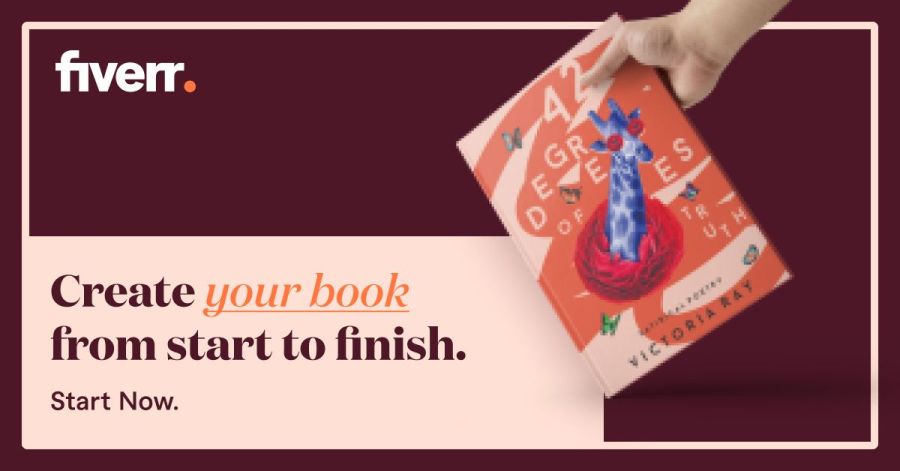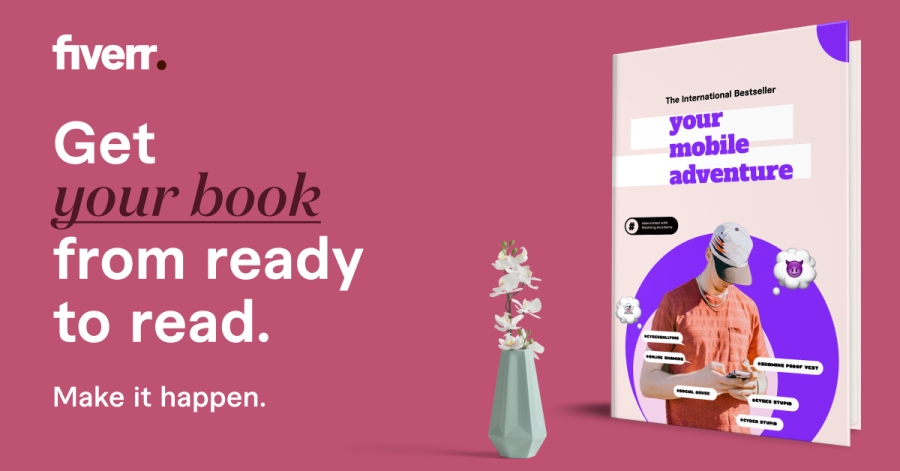In an age of information overload, being an expert is passé. To sell more books you must learn how to curate content and filter information.
How much would you pay someone to sift through your email each morning, deleting the garbage and presenting you with the 5 (out of 500) emails you need to respond to?
Wading through the glut of content online just to find a couple of gems can be tedious, not to mention a massive waste of time. If you’ve already outsourced that to an assistant, lucky you! But if you haven’t, I bet this sounds like a dream.
Whether you want to sell eBooks or print books, you need to learn how to filter information and curate content to become the go-to person in your market.
Contents
Why You Need To Filter Information
Wondering why you should filter information instead of trying to be an expert?
For one, in the age of information overload, consumers will pay good money for content that cuts through the clutter. It helps them save time and effort and hone in on the exact information they need.
There are many people who filter information so you don’t have to. They are out there combing through the books, blogs, podcasts, posting their findings on their website or blog, or talking about it in their own podcast.
For example, in the book publishing market, Dan Poynter and John Kremer are both filters because they zeroed in on their market and became the go-to people for everything on book publishing and book marketing.
But, the best filters are so laser-focused in their market that not only can they filter out the “noise” for you, they can then compartmentalize the noise into sub-filters.
These sub-filters become even more significant, and here’s why. Increasingly, we are living in an age of customization. I mean, when was the last time you listened to an entire music album or read an entire newspaper?
More than likely you’re buying your music one song at a time on iTunes, creating a curated playlist on Spotify, reading your news selectively, or, in many cases, through RSS feeds that allow you to tap into only the content that you want.
How To Curate Content Like A Pro
Books, blogs, podcasts, RSS feed curation tools, content curation websites, content curation apps – all of these information sources can help you grow an audience that craves your curated content.
The tools you have at your disposal (many of them free) can make it easy to filter information. But, before you start to curate content and information, consider these quick tips to help you get clear on what you have to offer.
#1. Dedicate yourself to learning
Learning how to curate content for your audience requires effort and dedication, but the benefits will pay off in ways you can’t imagine.
What I mean by dedication is that you (or someone you hire) must read every publication out there on your topic, so your reader doesn’t have to.
And more than that, you should read outside of your area of expertise, because you never know where the big, creative ideas will come from.
Take an afternoon, once a month, and devour your reading material. It can be overwhelming sometimes, but the upside is that you are constantly staying dialed into your market. That’s the first step to becoming a filter.
Of course, if you want to save time and make it easier on yourself, you can use AI content writing tools that can help you curate content from various sources to create original and unique content, and even write books in a fraction of the time.
One of the best YouTube content curation examples is Four Minute Books, a collection of over 800 free book summaries, each of which draws 3 lessons from one of the world’s best books to help you get smarter in 4 minutes or less.
Not only does this YouTube channel save you the many hours you would have to spend reading an entire book just to glean a few gems of actionable information, but they promise to give you the information you need “in 4 minutes or less.” A compelling hook indeed!
Of course, in order to curate content from a book into a 4-minute byte of information, someone had to read the entire book, write down the actionable tips, and create an animated video summarizing the book and its lessons.
But why would anyone buy the book once they’ve heard the summary? Here’s why. The people who don’t read books would not have bought them anyway. But now at least they’ve heard about it and can recommend it to someone else.
As for the people who are truly interested in reading and learning, they are likely to buy the book anyway and read it in its entirety, now that they’ve heard the summary.
So now it’s time to contemplate how you can tailor this concept to what you’re doing. How would your book benefit from this type of content curation and how can you curate the content you need to achieve your goals?
#2. Be crystal clear about your niche
If you’re in a huge market like automobiles, you probably don’t want to talk about every single car that’s out there or being developed. Perhaps you want to focus only on hybrid vehicles.
Once you have this clarity and focus and your direction is clear, your website should reflect that. Your writer’s website should be the first marketing collateral to work on while you start to curate content for your book.
Next, ask yourself if your book is a filter of information. If it’s not, how can you make it one? Filtering information is tougher for fiction authors (unless you’re publishing an anthology), but non-fiction authors should have no trouble leveraging this idea to write their own books.
For instance, when I wrote my emotional self-care book, Devi2Diva, I based it on my life experiences, the healing I had gone through, and the transformation I had created in my life, not just on the information in the books I had read.
I filtered the life lessons I had learned and put them into a book to make it easier for women who were looking to transform their own lives to find the information they needed to do it.
So, publish a blog, start a podcast, and write, write, write on trends, reviews, hot new ideas, and more in your niche. And I’m not just talking about filtering stuff for a client.
Be objective and become a filter for the competition, too, and by all means, send people to other vendors if they can offer what you can’t. Remember, the customer or reader came to you first.
#3. Start building a personal brand
Everyone’s a brand, even Nora Roberts. When you curate content and become a filter, it will help you brand yourself. Remember that people don’t buy a book, they buy a brand. If you’re clear on your author brand, you’ll sell more books.
Figuring out your branding doesn’t need to be complicated, but it does need to be focused. I’m not talking about the kind of branding that requires hours of logo development.
I’m not even talking about a brand that’s necessarily original. Yes, you want to be unique, but the key isn’t doing something no one else is doing (especially since that means it is probably not a viable market). The key is doing it better.
#4. Make customization your best friend
So, let’s use the car example again. Let’s say you wrote a book on hybrid cars and your site is all about hybrids, as is your blog, newsletter, and podcast. By now you have built a killer personal brand, and it’s time to break out into new areas.
So how about writing eBooks with quick and easy tips for focused markets, like buying a hybrid for seniors or buying a hybrid for families? The key to remember is that each of these markets has its own specific needs.
When it comes to buying a car, the needs of a family are different from those of a senior or single. So keep that in mind and address those needs when you curate content and start writing a book.
So how can you become a filter? What’s your market and focus? Perhaps you’re thinking that you can apply some of these tips to curate content, but not all of them.
To help you come up with your own content curation examples, here’s an example of curated information I published especially for cash-strapped business owners – an exhaustive list of freebies for bloggers and entrepreneurs.
It was designed to give this audience exactly what they’re looking for – all the best free courses and webinars they need to start and grow a business online in one place.
So get started building a writer platform, and start working on a book that will be a filter for your audience. The most important thing to remember is that being an expert is passé.
These days everyone’s an expert, so what you want to do is curate content and filter information so you can become a filter, not an expert.
More book writing & publishing tips
- How to start writing a book for beginners
- How to write and publish a low-content book
- Learn how to write a book with free book writing classes
- Best creative writing AI story writer & AI poem generator tools
- Free book writing software & online writing tools
- 16 types of writing skills and how to learn them
- 12 fast writing tips: Learn how to write fast & write well
- 10-step plan to become the published author of a book
- 7 tips for overcoming and dealing with writer’s block
- How to write the perfect nonfiction book proposal that sells
- 7 habits of the most successful writers & famous authors
- How to become a book writer without writing a book
- How to learn creative writing & become a better writer
- How to become a successful self-published author
- Amazon KDP publishing checklist to self-publish on Kindle
- How to write catchy book titles & compelling book content
- How to write a bestseller & become a bestselling writer
- Best creative writing Masterclasses by Masterclass authors
- 5 book promotion tips that actually work to sell books
- 10 reasons to build a writer platform with a blog
© 2022 – 2023, Priya Florence Shah. All rights reserved.
Priya Florence Shah is a bestselling author and an award-winning blogger. Check out Devi2Diva, her book on emotional self-care for women. In her spare time, Priya writes science-fiction novels and poetry and chills with her two-legged and four-legged kids.
Discover more from Business & Branding Tips
Subscribe to get the latest posts sent to your email.






